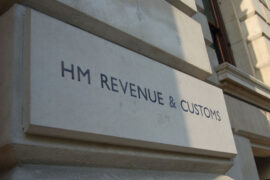
Chancellor of the Exchequer, Rachel Reeves, presented her first Budget since taking office to the House of Commons on 30th October 2024.
The first Budget to ever be delivered by a woman, and the first of a Labour government since 2010, Reeves set out plans to increase day-to-day departmental spending and public investment, alongside significant tax rises for businesses, which she described as necessary for “restoring stability to our public finances… and rebuilding our public services.”
Key highlights of the measures announced in the Chancellor’s Budget are detailed below:
Taxation
National Insurance
Employers National Insurance contributions will rise from 13.8% to 15% from 6th April 2025. The Secondary Threshold – the level at which employers become liable to pay national insurance on each employee’s salary – will also reduce from £9,100 per year to £5,000 per year. For the smallest businesses, the Employment Allowance will increase to £10,500 (currently £5,000) and be extended to all eligible employers by removing the £100,000 cap.
Capital Gains Tax
Rates of Capital Gains Tax (CGT) will rise from 10% to 18% and 20% to 24%, and match rates paid for residential property (which remain unchanged). For business owners looking to sell their business, Business Asset Disposal Relief (BADR) will remain at 10% this year, before rising to 14% on 6 April 2025 and 18% from 6 April 2026-27.
Corporation Tax
Alongside the Budget, the government has published its Corporate Tax Roadmap, which commits to cap Corporation Tax at 25% and maintain the capital allowances system, including permanent full expensing and the £1 million Annual Investment Allowance. The Roadmap also includes commitments to preserve generous R&D reliefs and develop a new process to ensure tax certainty in advance to support major investments.
Business Rates
From 2026-27, the government will permanently lower tax rates for retail, hospitality and leisure properties, while a higher multiplier will be introduced for the most valuable properties, including large distribution warehouses for online retailers.
The Chancellor also announced a 40% relief for retail, hospitality and leisure, up to a cap of £110,000 per business. The small business multiplier will also be frozen next year, and one third of business properties will continue to pay no business rates due to Small Business Rates Relief.
Inheritance Tax
Inheritance tax thresholds will remain fixed through to the April 2030, however, some relief will be reduced. From April 2027, inherited pension pots will be subject to inheritance tax. From April 2026, agricultural property relief and business property relief will continue at 100% for the first £1 million of assets, and reduce to 50% after the first £1 million. Offshore trusts will no longer be able to be used to shelter assets from Inheritance Tax.
Duty
Alcohol duty will rise in line with RPI inflation, with the exception for draught products in pubs that will see a reduction for an average strength pint of a penny. Relief available to smaller producers will also be increased.
Fuel Duty will be frozen for one year, with the temporary 5p cut extended until 22nd March 2026. Vehicle Excise Duty First Year Rates will be frozen at £10 until 2029-30 for zero emission cars, while rates for hybrids and petrol/diesel cars will rise from 1st April.
Air Passenger Duty will be adjusted to account for previously high inflation, increasing £1 for domestic flights, £2 for short haul, and £12 for long haul flights, which under 16s remaining exempt.
The tobacco duty escalator has also been renewed, increasing tobacco duty by RPI+2%, with a vaping duty to be introduced at 22p/ml in October 2026.
Other taxes
- The Higher Rate for Additional Dwellings surcharge of Stamp Duty Land Tax will rise from 3 to 5%.
- 20% VAT will be applied to education and boarding services provided for a charge by private schools from 1 January 2025; they will also lose business rates charitable rate relief from April 2025.
- The Soft Drinks Industry Levy will increase over the next five years to account for inflation, and will then be uprated annually in line with inflation.
Public services and infrastructure
Transport
An additional £500 million will be provided for local road maintenance in 2025-26, a 50% increase on the previous government’s commitment. A further £650 million will support transport improvements in towns villages and rural areas, while Metro Mayors will receive an extra £200 million as part of City Region Sustainable Transport Settlements.
The cap for single bus fares will rise to £3 in January 2025. Greater Manchester has, however, committed to keeping the fare cap at £2 locally.
Commitments have also been made to fund the redevelopment of London Euston as part of the delivery of HS2, as well as the Transpennine Route Upgrade between Leeds and York (improvements between Manchester and Leeds are currently underway. Work is also to move forward on the next stretch of and East-West rail link between Oxford and Cambridge with a consultation on the route between Milton Keynes and Bedford.
Health and social care
The Chancellor has confirmed an additional £22.6 billion for day-to-day health spending over two years, which will support an extra 40,000 NHS appointments each week. £1.5 billion capital funding will support new surgical hubs, diagnostics facilities and additional bed capacity across the NHS estate. £100 million will also go to improvements at 200 GP surgeries.
For those working and looking after a loved one at home, the weekly earnings limit for Carer’s Allowance will be increased to 16 hours at the National Living Wage, with a commitment that the earnings limit will increase with the minimum pay rates in the future.
Education
The education sector will receive an additional £4 billion, including £2.3 billion for the core schools’ budget to increase per pupil spending in real teams. Funding will support 100 project plans to address the poor state of many school and college buildings. £1.4 billion will also be provided for the school rebuilding programme.
Housing
As previously announced, the Affordable Homes Programme will increase to £3.1 billion, with a £500 million boost in funding. £3 billion of additional support will be provided to SMEs and the Build to Rent sector.
Other measures
- The Greater Manchester and West Midlands combined authorities will be granted additional devolved powers over how they choose to spend funding, with integrated settlements to be granted from next year.
- The National Living Wage will rise to £12.21, while pension incomes will increase by 4.1%, in line with wage growth. Other benefits will rise 1.7%, in line with September’s inflation figures.
- £500 million will be invested into boosting digital infrastructure in under-served areas across the UK, including via Project Gigabit and the Shared Rural Network.
- £20.4 billion has been allocated in 2025-26 to continue to deliver record levels of government R&D investment.
- A new residence-based regime will replace the current non-dom regime from April 2025 and will be designed to attract investment and talent to the UK, while reducing scope for tax avoidance. HMRC will also recruit 6,800 new staff over the next five years as part of plans to reduce the amount of uncollected tax owed to the UK, with improvements to IT systems and digital services to make managing tax affairs easier.




















 Cheshire East Council to consider 9.99% council tax rise
Cheshire East Council to consider 9.99% council tax rise  11.48 million file Self Assessment returns
11.48 million file Self Assessment returns  Former Homes England Chief Executive set to lead new Cheshire and Warrington Combined Authority
Former Homes England Chief Executive set to lead new Cheshire and Warrington Combined Authority